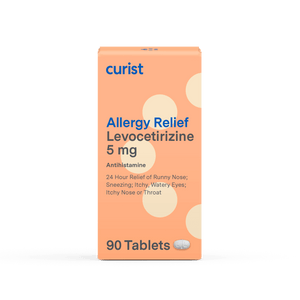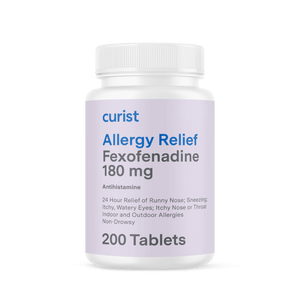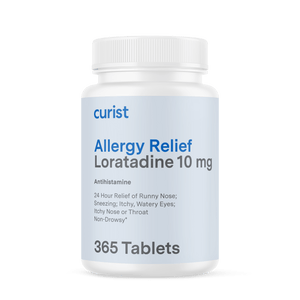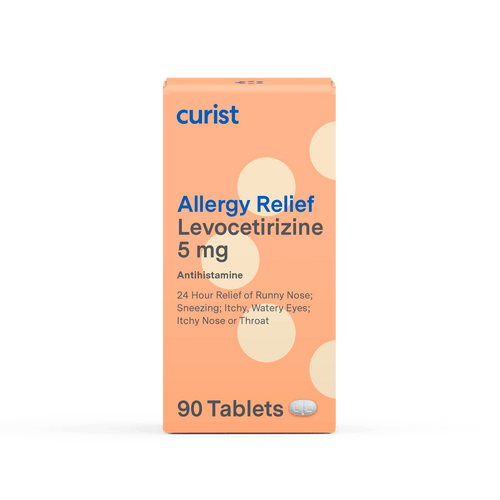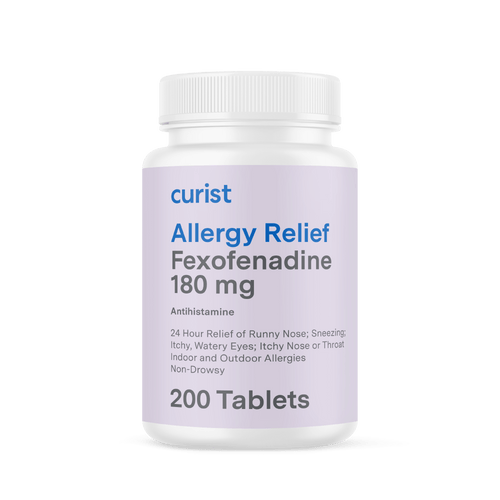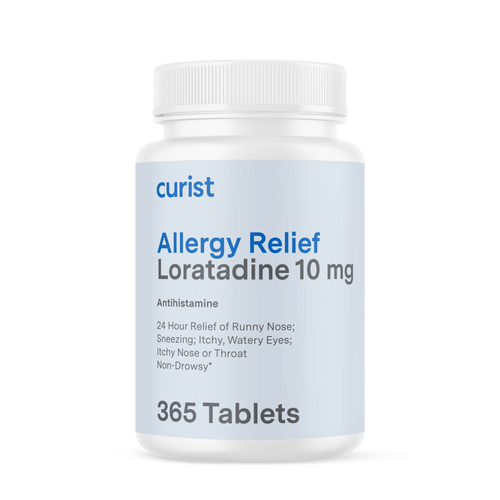Curist delivers over-the-counter medicines to your door at a fraction of the price of traditional brands. We hope everyone stays safe and healthy during this time.
Ever since I was a little girl, I’ve always had a love for pets, especially dogs and cats. There was only one huge problem - I am allergic to them. My parents always knew that I was allergic to cats so we tried living with a hypoallergenic cat, but that did not help my symptoms. Instead, I developed a set of tips that helped me live with my cats symptom free! Although my solutions may not help everyone, here is what I did to keep my furry friends at home with me!
What Causes Cat Allergies? How Do You Know If You Are Allergic To Cats?
When it comes to cat allergies, most people mistakenly assume that fur is the main culprit. Cat allergies are actually allergies to proteins that are found on an animal’s skin cells, saliva, or urine. So how do you know if you’re allergic? If you are near a cat, for example, your eyes may become watery or itchy, your throat may start to itch or tighten. One way to confirm a cat allergy is to visit your local allergy clinic and take an allergy skin test.
What Are Common Symptoms of Cat Allergies?
Common symptoms of cat allergies include itchy eyes, watery eyes, itchy skin, itchy throat, severe wheezing, hives, and sneezing. Everyone’s allergies are different, but luckily, my allergic reaction was limited to itchy eyes, itchy throat, itchy skin, and sneezing. My parents first thought that maybe getting me a “hypoallergenic” cat would be the ultimate solution. Let’s find out if it worked.
Are There Truly Hypoallergenic Cats? Will Hypoallergenic Cats Help My Allergies Go Away?
Shockingly, there is no such thing as a truly hypoallergenic cat. Typically, people say that “hypoallergenic” pets do not shed, but in actuality, it’s not the fur that most people are allergic to-- it’s the dander and pollen that is collected on their fur. And I can confirm! For me, “hypoallergenic” pets did not help reduce my allergy symptoms.
What is The Best Treatment to Get Rid Of Cat Allergies?
Unfortunately, the best treatment for your cat allergies would be to remove the pet from your home permanently. I had adopted two male kittens, but as soon as I got them, I was already itching and sneezing. Some things I used to help my symptoms were antihistamines, steroid nasal sprays, and steroid creams. The antihistamine that works best for me is cetirizine (brand Zyrtec). If I start to get too congested, I use nasal sprays such as fluticasone (brand Flonase and Curist) or oral decongestants like Sudafed to help! Most of the time, antihistamines are enough to ease the symptoms, but, due to my eczema, I sometimes have to use steroid creams such as hydrocortisone to ease the inflammation. Everyone responds uniquely to different treatments, so if these options don’t work for you, I recommend trying other allergy medications that are available over-the-counter.
Can You Develop Allergies to Cats As An Adult or Get Cat Allergies All Of a Sudden?
When I was five years old, I had my first cat, Mulan, and I immediately knew I was allergic to cats. I began to sneeze around her, I would become itchy all over, and I would become congested. Some people can be allergic to cats throughout their lives, like me.
On the other hand, some people can develop a sensitivity to allergy-inducing pet proteins over time. My mom, for example, used to own pets as a child without exhibiting allergy symptoms. Now, when she is in a house with a dog or cat, she begins to sneeze a lot. So, unfortunately people can develop pet allergies at any point in life.
Can You Develop an Immunity to Cat Allergies? Is There a Cure for Cat Allergies?
Personally, my moderate cat allergies have become a lot more tolerable over time. Some allergy experts theorize that people can develop a tolerance to allergens by gradually introducing, then increasing, one’s exposure to an allergen in small doses. I’ve seen this happen to me! At first, my eczema flared and my sneezing was uncontrollable. Over time, my immune response has become less sensitive and I can now be around them comfortably. Although this was my story, every person is different and can respond differently to pet allergens. I would not recommend this approach for someone with a severe enough allergy who may have trouble breathing around pets or could even risk anaphylactic shock.
In general, many people do find relief from cat allergies with allergy immunotherapy (allergy shots). Allergy shots work similarly to vaccines and help build your tolerance to allergens over time. Although they are not considered a cure or absolute immunity for cat allergies, allergy shots are effective at reducing or eliminating symptoms in many people.
Can You Live With A Cat If You Are Allergic?
If you want to keep your cats as I have, there are many different options! Here are a few tips:
- Find the right antihistamine that works best for you to treat allergy symptoms.
- Purchase a HEPA filter to trap allergens and pollutants to bring some allergy relief.
- Constantly vacuum your floors (a Roomba helps me save time!) to keep allergen build-up at a minimum.
- Clean counters and furniture daily to minimize exposure to pet dander.
- Clean or bath your pet at least weekly can help as well.
Thanks to the use of antihistamines and some of the tips above, I get to happily live with my two cats Nickie and Noah!






